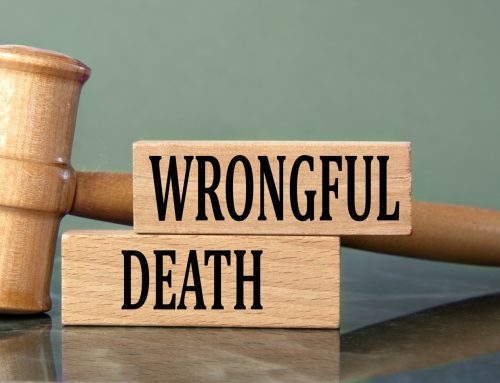As we kick off 2025, it’s the perfect time to arm yourself with knowledge—especially when it comes to understanding your rights after an accident. Whether you’re navigating the aftermath of a car crash, slip and fall, or another incident caused by someone else’s negligence, the personal injury process can feel overwhelming. The good news? You’re not alone, and staying informed is the first step to protecting yourself.
Here are 25 things you need to know about personal injury cases in 2025 to help you confidently navigate your claim, secure fair compensation, and move forward with peace of mind.
Understanding Personal Injury Basics
- What Is a Personal Injury Case?
A personal injury case arises when you’re hurt due to someone else’s negligence. This can include car accidents, slip and falls, dog bites, medical malpractice, product defects, and more. If someone’s careless actions caused harm, you may have grounds for a claim.
- The Role of Negligence
Negligence is the backbone of any personal injury case. To win, you must prove that:
- The other party owed you a duty of care (e.g., a driver following traffic laws).
- They breached that duty (e.g., ran a red light).
- Their actions caused your injuries.
- You suffered damages, like medical bills or lost wages.
- Statute of Limitations in 2025
Every state has a time limit—known as the statute of limitations—to file a personal injury lawsuit. In Georgia, for example, you generally have 2 years from the date of the injury to file. Miss this deadline, and you might lose your right to compensation.
- Comparative Negligence Laws
If you share part of the blame for the accident, you can still recover damages—but your compensation will be reduced based on your percentage of fault. For example, if you’re 20% responsible, you’ll receive 80% of the settlement.
- Types of Personal Injury Compensation
There are two main types of damages:
- Economic damages: Tangible losses like medical bills, property repairs, and lost income.
- Non-economic damages: Intangible losses like pain, suffering, and emotional distress.
What to Do After an Accident
- Seek Immediate Medical Attention
Your health comes first. Even if you feel “fine,” hidden injuries like concussions or internal damage may not show symptoms right away. Plus, medical records are crucial evidence in proving your injuries.
- Document the Scene
Take photos and videos of the accident scene, injuries, vehicle damage, and anything relevant. Capture weather, lighting, and hazards like wet floors or debris. This visual evidence can strengthen your case.
- File a Police Report
A police report provides an official account of the incident, including statements from witnesses and involved parties. Insurers and courts rely heavily on this document.
- Notify Your Insurance Company
Report the accident to your insurer promptly but be careful what you say. Stick to the facts, and avoid admitting fault, even casually (“I didn’t see them” can be twisted against you).
- Avoid Discussing the Accident Publicly
Insurance companies and defense attorneys often comb through social media for evidence to undermine your claim. Avoid posting photos, updates, or comments that could be misinterpreted.
The Claims Process in 2025
- Insurance Adjusters Are Not on Your Side
Adjusters work for insurance companies, whose goal is to pay you as little as possible. They may:
- Dispute liability (blame you for the accident).
- Downplay your injuries.
- Offer quick, lowball settlements.
*This is why having an attorney who can advocate for you is so important.
- The Importance of Evidence
Strong evidence wins cases. This includes:
- Medical records and bills
- Witness statements
- Photos or surveillance footage
- Expert opinions (doctors, accident reconstruction specialists)
- The Role of Demand Letters
Your attorney will send a demand letter to the at-fault party’s insurance company outlining your damages and requesting fair compensation. It’s a formal way to open settlement negotiations.
- Mediation and Settlement Negotiations
Many cases settle outside of court. Mediation involves a neutral third party helping both sides reach a fair agreement. It’s faster and less stressful than a trial.
- When to File a Lawsuit
If negotiations fail, filing a lawsuit may be the next step. Your lawyer will guide you through litigation, ensuring you’re prepared for depositions, discovery, and trial if necessary.
Legal Representation: Why It Matters
- The Benefits of Hiring Reid Law Group
At Reid Law Group we know how to build a strong case, negotiate with insurers, and fight for maximum compensation. We handle the legal heavy lifting, so you can focus on healing.
- Contingency Fees: No Upfront Costs
Reid Law Group works on a contingency fee basis, meaning we only get paid if you win.
No win = no fee.
- Why Reid Law Group is Right For You
We have lawyers who have:
- Experience with personal injury cases like yours
- Positive reviews and a strong track record
- Good communication and concern for you
- What to Expect When Working Reid Law Group
Our entire team makes ensures that we:
- Investigate your case thoroughly
- Communicate with insurance companies on your behalf
- Keep you updated on progress and options
- Work to get you the compensation you deserve
Trends and Changes in 2025
- The Impact of Technology on Personal Injury Cases
Dashcams, smartphones, and even AI tools now play a huge role in proving fault and damages. Digital evidence is more powerful than ever.
- Understanding “Pain and Suffering” in 2025
Courts and insurance adjusters use formulas, medical evidence, and testimony to quantify non-economic damages. The attorneys at Reid Law Group will help maximize this part of your claim.
- The Rise of Telehealth Records
Virtual doctor visits are becoming common post-accident. These records are just as valid as in-person visits and can help document your injuries.
- The Role of Expert Witnesses in 2025
Expert witnesses—like medical professionals or accident reconstructionists—are essential for validating your claim, especially as technology becomes more complex.
- Staying Informed About Your Rights
Personal injury laws can change. Staying informed helps you make better decisions and hold negligent parties accountable.
- Don’t Wait to Take Action
The sooner you act, the stronger your case will be. Witness memories fade, evidence can disappear, and deadlines approach quickly.
Navigating a personal injury case might seem daunting, but knowledge is power. By understanding your rights, gathering strong evidence, and working with a skilled attorney, you can confidently pursue the compensation you deserve in 2025.
If you or a loved one has been injured, don’t face the battle alone. Contact Reid Law Group today for a free consultation. Let us help you start 2025 on the path to justice, recovery, and peace of mind.
Ready to protect your rights in 2025? Reach out now and let’s get to work on your case!







